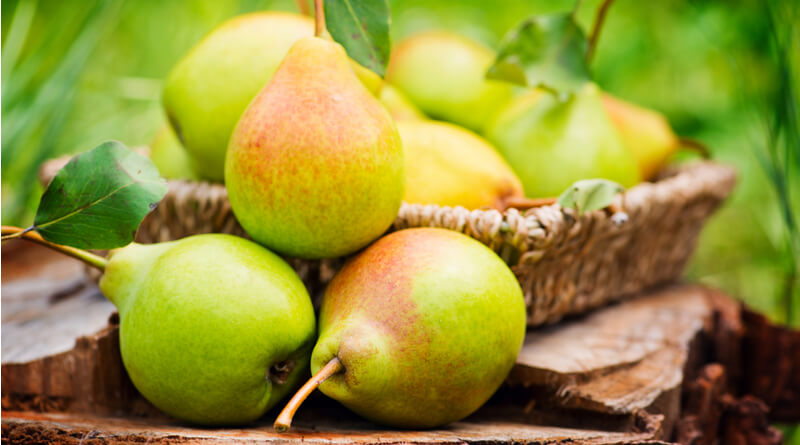Pears are tropical fruits that should be included in your daily diet. They are low in calories and rich in nutrients. You need to wash them thoroughly before consumption. Washing will rid the fruit of any harmful chemicals or germs that might be attached to the surface of the fruit.
Health benefits of pears during pregnancy
- Pears are available during the summers and are sweet in taste. They are low in calories and a source of healthy fruit carbohydrates. These carbohydrates will provide the energy needed for growth and development of the baby.
- They are rich sources of vitamin C. Vitamin C is a powerful antioxidant and is important for baby’s growth and development. It also strengthens the teeth and gums of the baby. Vitamin C is also known to help absorb nutrients from the food.
- Pears also contain vitamin A which helps in reducing the chances of catching infectious diseases. It is also known to promote eye development in the baby and is also required by the bones and kidneys for proper development. It is also essential for the development of the circulatory, respiratory, and nervous system.
- They are rich sources of potassium. Potassium will help to balance the number of electrolytes present in the blood. It is also known to help regulate blood pressure. It also reduces the occurrence of cramps in legs and abdomen.
Side-effects of pears during pregnancy
- Eating an excessive quantity of pears can lead to gastric problems, vomiting, and diarrhea.
- If you are diabetic, consume pear in a moderate amount.
- Unripe pear can lead to stomach problems as it has a hard fiber so make sure to only consume pears that are fully ripe.








